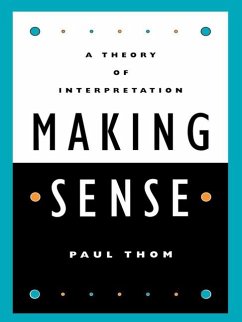
End of Story: Toward an Annihilation of Language and History
Versandkostenfrei!
Nicht lieferbar
Argues that the academy's obsession with language, and in particular with narrative, has become a sort of disease. In End of Story, Crispin Sartwell maintains that the academy is obsessed with language, and with narrative in particular. Narrative has been held to constitute or explain time, action, value, history, and human identity. Sartwell argues that this obsession with language and narrative has become a sort of disease. Pitting such thinkers as Kierkegaard, Bataille, and Epictetus against the narrativism of MacIntyre, Ricoeur, and Aristotle, Sartwell celebrates the ways narratives and se...
Argues that the academy's obsession with language, and in particular with narrative, has become a sort of disease. In End of Story, Crispin Sartwell maintains that the academy is obsessed with language, and with narrative in particular. Narrative has been held to constitute or explain time, action, value, history, and human identity. Sartwell argues that this obsession with language and narrative has become a sort of disease. Pitting such thinkers as Kierkegaard, Bataille, and Epictetus against the narrativism of MacIntyre, Ricoeur, and Aristotle, Sartwell celebrates the ways narratives and selves disintegrate and recommends a lapse into ecstatic or mundane incoherence. As the book rollicks through Wodehouse, Thoreau, the Book of Job, still-life painting, and Sartwell's autobiography, there emerges a hopeful if bizarre new sense of who we are and what we can be.













